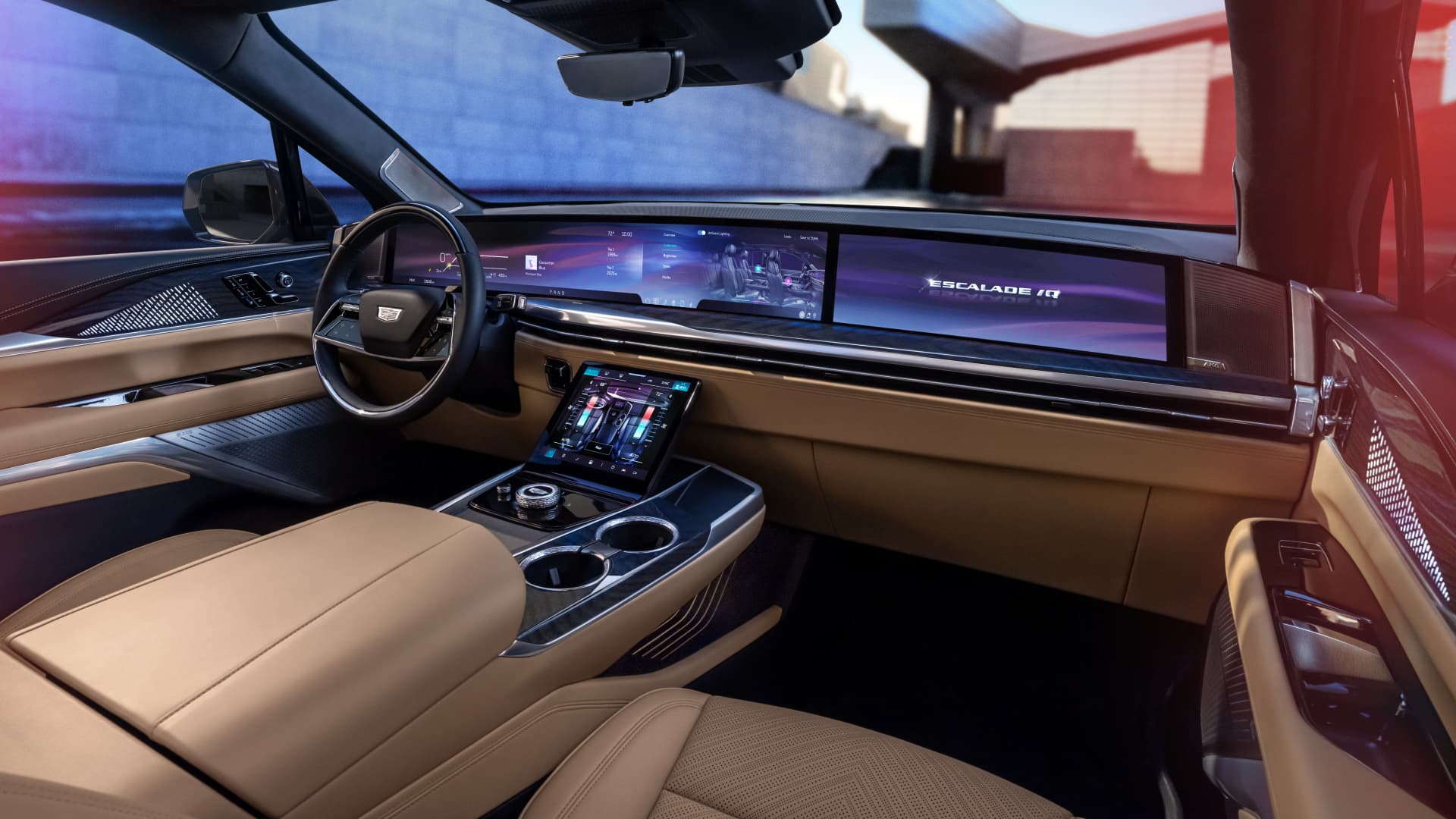
Qualcomm is best known for the chips and modems inside Android phones. But in recent years, it’s also started selling a package of hardware chips, sensors and software called Snapdragon Digital Chassis to automakers like GM, Hyundai and Volvo.
Now, it’s hoping to capitalize on the hype around generative artificial intelligence to convince automakers to buy more of these chips and build new scenarios around them, such as smart assistants that would help drivers navigate around cities, make reservations and do other daily computing tasks.
Automotive revenue is still a small business for Qualcomm. It reported $1.32 billion in sales in its fiscal 2022, or about 3% of the company’s overall sales. But the company says that it can expect that its chips will be used in forthcoming cars over the next few years, and projects more than $9 billion in sales in 2031.
Qualcomm makes between $200 and $3,000 per car that use its chips and software, officials said last fall at an investor event. The company also makes $5 per car that’s connected to 5G through licensing fees.
One example of the company’s presence in cars: GM’s new electric $130,000 Cadillac Escalade IQ SUV uses Qualcomm chips and software to help power the vehicle’s 55-inch dashboard display, as well as lane-keeping and hands-free driving features under GM’s “Ultra Cruise” branding. The SUV also notably does not allow users to mirror their phones to the entertainment system, a feature known as Apple CarPlay or Android Auto, meaning drivers will interact with GM’s chosen software interface, increasing the importance of the in-car computer experience.
Qualcomm faces stiff competition from other chipmakers in the car chip business. Computer-focused chip companies like Intel through its Mobileye subsidiary and Nvidia sell automotive products, in addition to traditional auto suppliers such as Continental, NXP Semiconductors and Bosch, which are all vying to supply parts and chips that power dashboards and driver assistance systems.
2025 Cadillac Escalade IQ
GM
This week, Qualcomm demonstrated potential future scenarios that its chips could enable with the assistance of large language models and generative AI.
In one example, Qualcomm showed how a car assistant could find a recipe for chicken enchiladas and add the ingredients to a shopping list. In another, the car computer uses Stable Diffusion, a type of generative AI model, to create and send an AI-generated birthday card to the driver’s brother. The demos were all running on the car’s computer, not a phone. The assistant feature is a preview of how cars could become more like personal computers in the coming years. Qualcomm CEO Cristiano Amon sees cars as a “new computing platform,” he wrote in a blog post this week.
Qualcomm’s demonstration highlights the company’s desire to be seen as an AI company, through its low-power smartphone GPUs and AI accelerators. Investors have so far focused on Nvidia’s cloud GPUs, which are used to power applications like ChatGPT. While the AI boom has tripled rival Nvidia’s stock so far this year, Qualcomm is only up 5% during the same period.
A short-term goal for Qualcomm’s language models is to create a smart user guide using a large language model that’s been trained and fine-tuned on the dense user manuals that come with cars, said Nakul Duggal, automotive senior vice president at Qualcomm. Another frontier is driver monitoring, or using machine learning to determine if the driver is distracted or sleeping.
“We’re working with automakers who are actively going from a flat manual that you have in your glove compartment, to really adding context where the car is going to be able to understand what is going on,” Duggal said.
Another frontier for Qualcomm’s platform could be features that can upgrade the car’s software on the go with new self-driving capabilities, Duggal said — which could even be a new revenue stream for automakers.
“Where are you driving? Do you have trouble parking? Would you like to subscribe to that automated parking feature that we have that you haven’t actually purchased, but we can upgrade over-the-air? Or would you like a free trial for a period of time?” Duggal said. “There are so many different things that you can do once you have context.”
